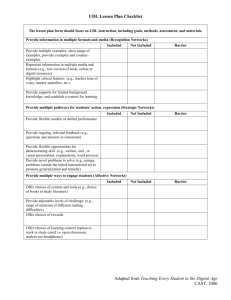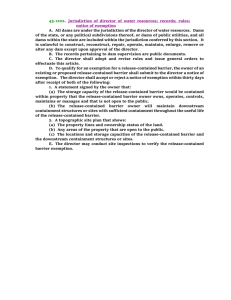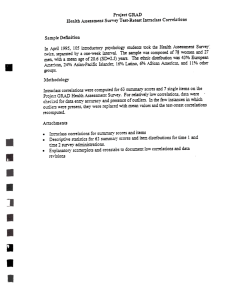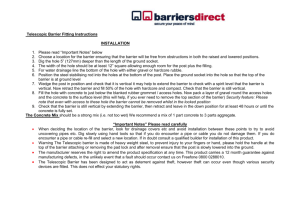UDL Lesson Plan Design Evaluation Checklist
advertisement
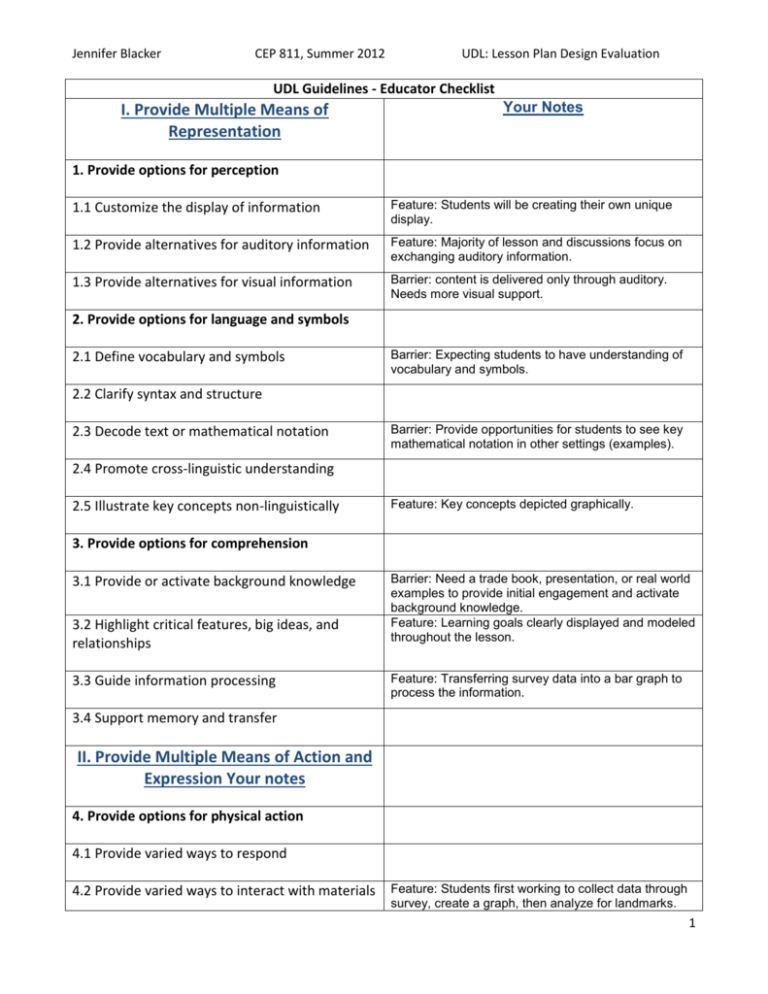
Jennifer Blacker CEP 811, Summer 2012 UDL: Lesson Plan Design Evaluation UDL Guidelines - Educator Checklist I. Provide Multiple Means of Representation Your Notes 1. Provide options for perception 1.1 Customize the display of information Feature: Students will be creating their own unique display. 1.2 Provide alternatives for auditory information Feature: Majority of lesson and discussions focus on exchanging auditory information. 1.3 Provide alternatives for visual information Barrier: content is delivered only through auditory. Needs more visual support. 2. Provide options for language and symbols 2.1 Define vocabulary and symbols Barrier: Expecting students to have understanding of vocabulary and symbols. 2.2 Clarify syntax and structure 2.3 Decode text or mathematical notation Barrier: Provide opportunities for students to see key mathematical notation in other settings (examples). 2.4 Promote cross-linguistic understanding 2.5 Illustrate key concepts non-linguistically Feature: Key concepts depicted graphically. 3. Provide options for comprehension 3.1 Provide or activate background knowledge 3.2 Highlight critical features, big ideas, and relationships 3.3 Guide information processing Barrier: Need a trade book, presentation, or real world examples to provide initial engagement and activate background knowledge. Feature: Learning goals clearly displayed and modeled throughout the lesson. Feature: Transferring survey data into a bar graph to process the information. 3.4 Support memory and transfer II. Provide Multiple Means of Action and Expression Your notes 4. Provide options for physical action 4.1 Provide varied ways to respond 4.2 Provide varied ways to interact with materials Feature: Students first working to collect data through survey, create a graph, then analyze for landmarks. 1 Jennifer Blacker CEP 811, Summer 2012 4.3 Integrate assistive technologies UDL: Lesson Plan Design Evaluation Feature: Students using MS word to create their bar graphs. 5. Provide options for expressive skills and fluency 5.1 Allow choices of media for communication Barrier: I am requiring students to use MS Word. 5.2 Provide appropriate tools for composition and problem solving 5.3 Provide ways to scaffold practice and performance 6. Provide options for executive functions Feature: Teacher models example before students begin the activity. 6.1 Guide effective goal setting 6.2 Support planning and strategy development Barrier: Student templates and rubrics should be included with the lesson. 6.3 Facilitate managing information and resources 6.4 Enhance capacity for monitoring progress III. Provide Multiple Means of Engagement Your notes 7. Provide options for recruiting interest 7.1 Increase individual choice and autonomy Feature: Students choose topic for survey. Ability to choose team members for project. 7.2 Enhance relevance, value and authenticity Feature: Connects to real-world data analysis and presentation. 7.3 Reduce threats and distractions Feature: Students are working in groups to share ideas and help each other. 8. Provide options for sustaining effort and persistence 8.1 Heighten salience of goals and objectives 8.2 Vary levels of challenge and support Barrier: Instructions on finished product the same for all students in class. 8.3 Foster collaboration and communication Feature: Students are working in teams of three. 2 Jennifer Blacker CEP 811, Summer 2012 UDL: Lesson Plan Design Evaluation 8.4 Increase mastery-oriented feedback 9. Provide options for self-regulation 9.1 Guide personal goal-setting and expectations 9.2 Scaffold coping skills and strategies Feature: Teacher modeling prior to the activity. 9.3 Develop self-assessment and reflection Barrier: Student templates and rubrics should be included with the lesson. 3
